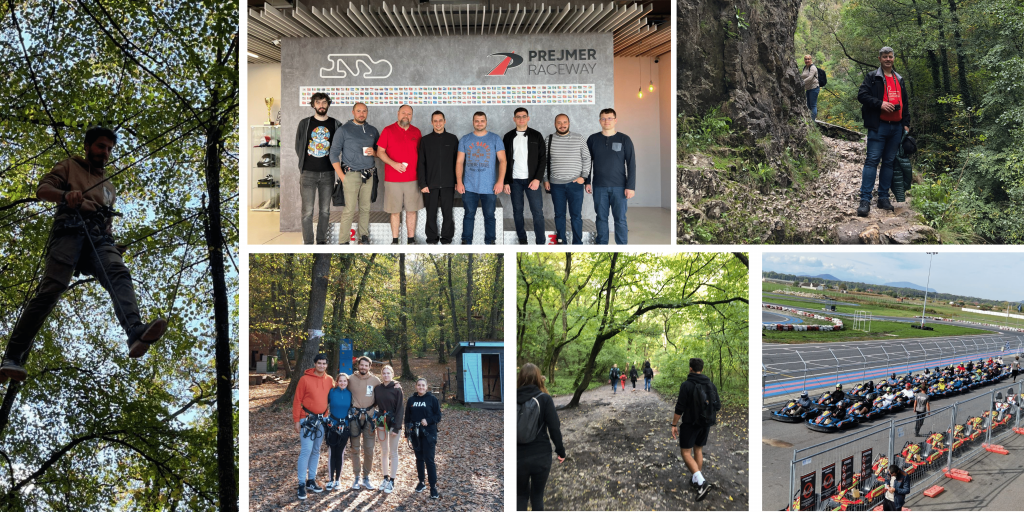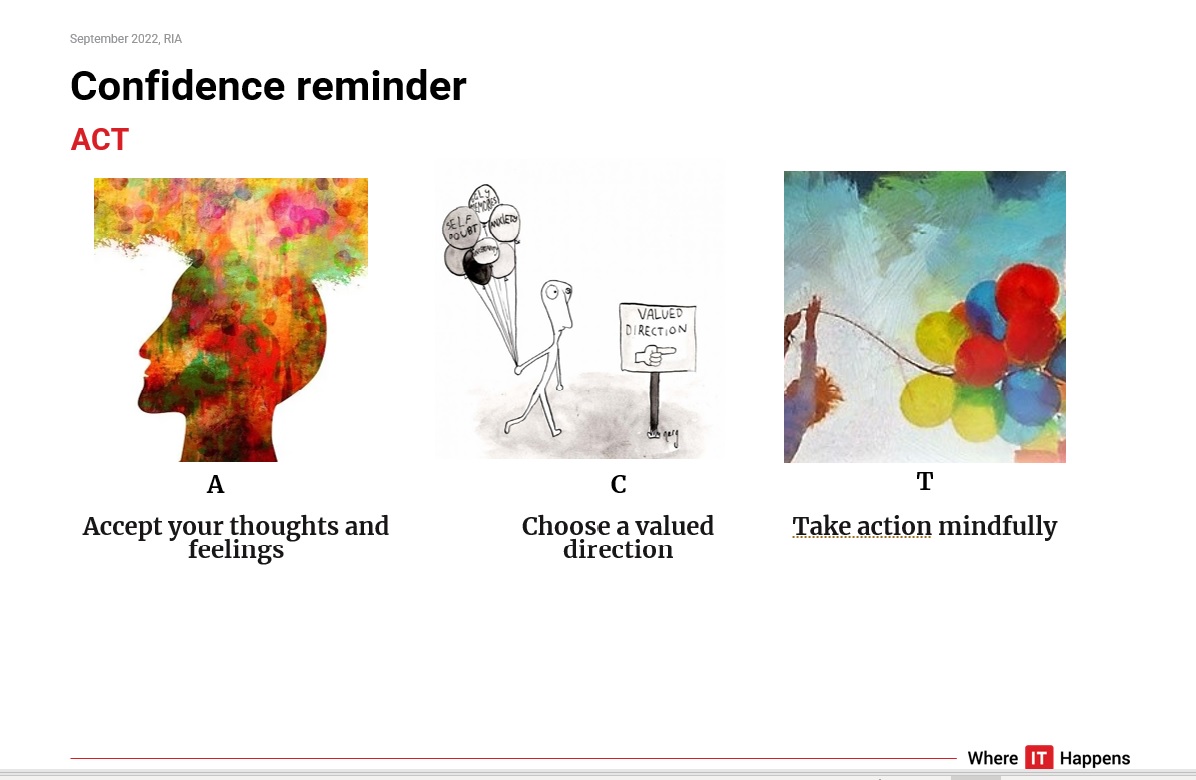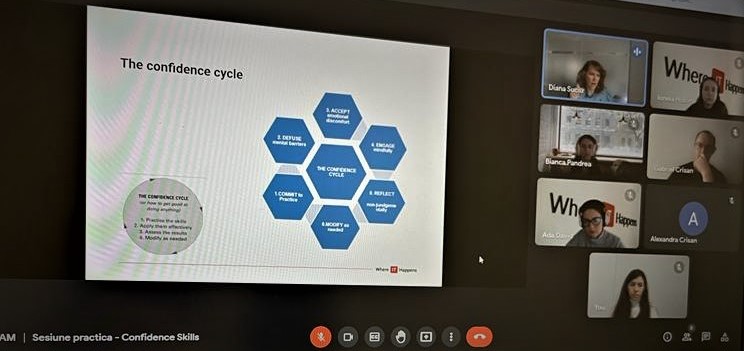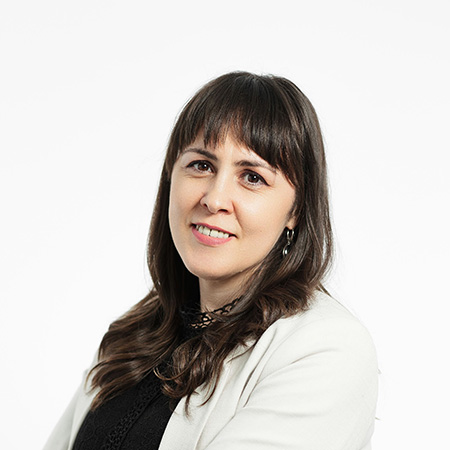Why is employee well-being so valuable to us at RIA?
“The way to perform at your best in work and have really strong relationships is to prioritize your physical and mental health. More vigor, more focus/presence, more time, more learning, more depth…”
Andrew Huberman, Professor and Neuroscientist at Stanford University
As the above quote emphasizes, employee well-being means feeling mentally, physically, and emotionally well at work. In this article, we refer to mental well-being when we talk about well-being.
CIPD research shows that mental health is the top focus of most employers’ well-being activities. While the concerns about the pandemic’s impact are growing, organizations have actively started promoting good mental well-being.
The initiatives under the umbrella of Mental Well-being at RIA have been built gradually over time, in different forms. This year, they have been prioritized and developed with more energy and determination than ever before. A larger strategy was drawn upon to holistically encompass our people’s physical, mental, social, and learning needs, and we started implementing it at various levels simultaneously. Regarding the mental well-being part of the program, first, we aimed to create the right environment for our colleagues to thrive by:
- Feeling safe and confident to act and speak honestly, with integrity
- Having the humbleness to ask for support or help
- Developing meaningful connections
- Being able to have clear distinctions between personal and professional responsibilities
Mental well-being is the ability to cope with the day-to-day stresses of life, work productively, interact positively with others, and realize our potential. How can we help our colleagues to achieve an enhanced level of mental well-being? This was the question that guided us in crafting – with care and dedication – a custom program to serve the specific needs of our colleagues. The process involved a needs analysis stage where we created a survey, and based on these results, we took actionable recommendations.
The needs analysis stage
Some of the things we planned to investigate during this stage were:
- Screen for burnout signs
- Know our colleagues’ expectations in terms of mental well-being at work
- Find out more about their “recharging” resources
- Find out more about the current problems they are struggling with
- Find out more growth areas vital to them
- Workshop topics of interest
We assessed these dimensions through a survey sent out to the entire organization at the beginning of August.
The findings
The responsiveness percentage recorded was ~ 38%. The items related to physical and emotional exhaustion were the highest rated but still light to moderate in intensity on the scale used to measure burnout signs. This finding is in line with the post-pandemic feeling. Working harder and longer, while the lines between our professional and personal lives become blurred, have begun to show their effects. Another interesting finding from our survey was that 58% of our colleagues expect the company to support their mental well-being by providing opportunities to interact and build relationships. This idea suggests a strong need for connection in our group. Another vital need in the group was to have more intensive career support, and that topic was addressed separately, through a professional development program. The survey findings helped prioritize the adoption of burnout prevention and mental health support initiatives. In the organizational context, many people feel ashamed to admit needing help. This is one of the most significant problems when it comes to burnout or distress. There is a stigma associated with burnout or expressing more negative emotions. Still, we must be aware that this phenomenon has become much more prevalent in organizations. The sooner we address it, the better we can stop the problem from becoming chronic. This is one of the reasons we have started implementing several initiatives to support our people.
Turning survey findings into reality
Our colleagues’ opinions, preferences, and needs are important to us. Therefore, we have started taking action on those as soon as possible:
- A significant majority of the respondents (76%) mentioned a commonly preferred way to recharge is taking walks in nature (outdoor activities). Hippocrates’ statement that “walking is man’s best medicine” is still applicable today and is supported by tons of research. Walking improves mood, reduces stress, depression, and anxiety symptoms, and boosts energy levels.
And we did test this statement together!
We invited colleagues from the Cluj office to a brief Saturday outie at Cheile Turzii. The colleagues in Targu-Mures and Brasov had their share of fun in nature, and the pictures below testify to how relaxing and recharging that was to all of us.

- We organized a workshop on self-confidence followed by practical group sessions (details below)
- We offered mental health benefits (psychotherapy sessions added to our benefits package)
- Wellbeing check-ins during one on ones with the team lead/manager and the HR representative
- Explicit individual learning plans to address our colleagues’ need for more career support
The workshop: Building Self-Confidence
This was the most-voted workshop topic in the survey mentioned above. The Mental well-being intervention started with the in-house design and delivery of such a workshop by including psychological concepts that increase self-awareness and set the foundation for specific skill building. The theoretical foundation of the workshop was inspired by the Acceptance and Commitment Therapy (ACT). ACT is an action-oriented approach building on traditional cognitive-behavioral models. The focus is on learning to stop avoiding, denying, and struggling with thoughts and emotions. Instead, accepting that they are appropriate responses to specific situations and should not prevent people from moving forward. As Russ Harris stated in the book “Act Made Simple” the core message of the word “Act” is to: “accept what is out of your personal control, and commit to taking action that enriches your life [guided by our values]. The aim of ACT is to help us create a rich, full, and meaningful life while accepting the pain that life inevitably brings”.

The participation rate for the 2-hour workshop was 62%. Since our colleagues mentioned they are looking for ways to interact and support each other, to grow together, we provided a new opportunity to do this – aside from the formal and informal events that define our community – by offering practical sessions after the workshop.
The practical sessions
These were 1-hour smaller group sessions where the participants were able to interact with each other and share their experiences based on the topics discussed in the workshop. The two major themes addressed interactively during these group sessions were:
- Getting to know our personal values and connection to confidence
- Confidence-building skills.
There were several group sessions on each theme, with participants ranging from a minimum of 3 to a maximum of 7. The participants gave feedback and testimonials, and you can find some things our colleagues were saying cited below.

Testimonials
Our colleagues appreciated the opportunity of being together in a safe environment and getting to know each other better. These open discussions made them realize that some of the things they have been feeling are normal; people feel the same in similar situations. As for me, as a content provider and facilitator, it was an enriching journey. I was not only able to find out more about how my colleagues think about various “hard”, or more abstract topics, but also to guide them through their inner journeys and helping make “confidence” workable and actionable. I loved seeing their involvement, dedication to improve, to work with themselves, the availability to become vulnerable in front of others, and their generosity to share glimpses from their inner worlds.
And here are some of my colleagues’ words about this experience:
“I am more aware of my capabilities and where I need to work more with my confidence level. I learned that confidence comes with many advantages like decision-making, improving relationships, helping manage anxious feelings, motivation, increased self-esteem, and others.”
“The workshop/practice session helped me understand that there are many other people with the same struggles or people that overcome specific fears, and this makes me confident that I can do the same.”
“I am more aware of my capabilities and where I need to work more with my confidence level. I like having a practice session in small groups because people tend to be more open and want to share personal stories.”
“I enjoyed how we all connected. I liked the fact that each member actively contributed.”
“I’ve never thought of confidence that way. It gave me a new and fresh perspective.”
Next steps
We will continue offering all of our support by actively finding out what is essential to our colleagues to feel supported and cared for – as human beings, and professionals.
All the initiatives mentioned above consolidate our belief that people need active care. The more active we are toward assimilating the feedback from our colleagues, the sooner we can offer continuous care for increased (mental) well-being. Care comes in various forms, from the more formal or informal talks we have to the walks, lunches, workshops, or group sessions we’ve taken together. The smaller group sessions were successful because they brought back the feeling of connecting through our humanity. As a result, we are considering leveraging and perpetuating those as a common practice in RIA. They are essential to us because they create opportunities to share our thoughts, find common ground, and grow our skills and knowledge together.
Uncover the transformative power of our holistic well-being commitment to our team’s success. Dive into our inspiring success stories to witness firsthand the positive impact of our approach. Explore how RIA Solutions Group fosters a thriving work culture rooted in well-being. Visit our success stories page to learn more.

Emanuela Benchea
HR Specialist at RIA Solutions Group
